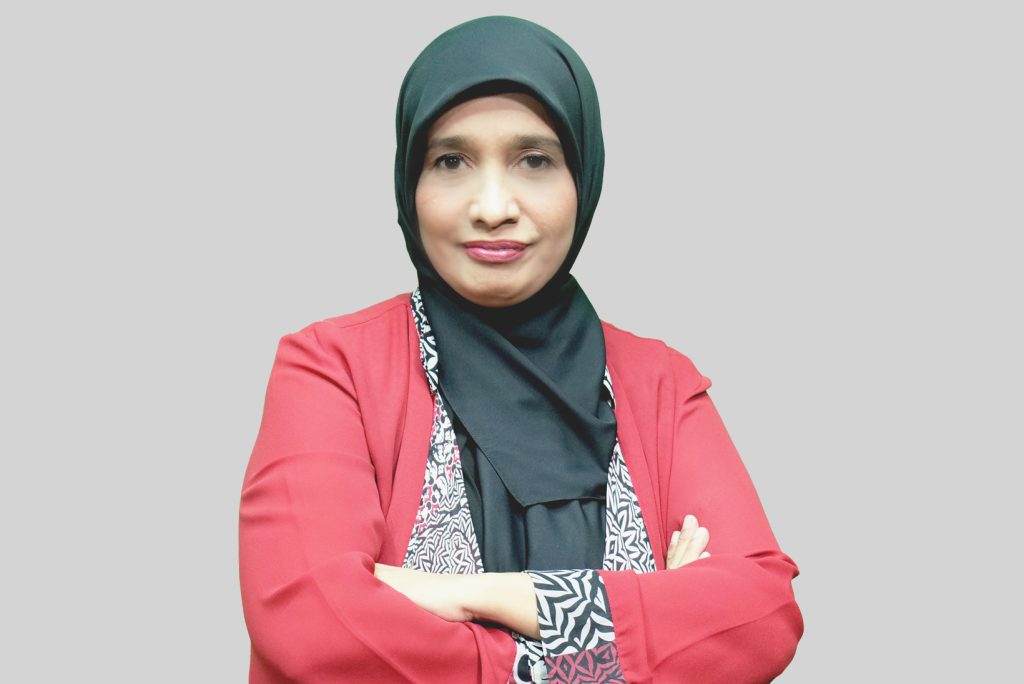July 12, 2023
“Building a company is like building a family,” shared Nadia Alatas, referencing the importance of compassion and collaboration as core values.
As Founder and CEO of Cybertrend Intrabuana – a market-leading data science specialist in Indonesia – Alatas is an entrepreneur with a big brain and an even bigger heart.
This is a business leader with profound intelligence, unnerving determination and exceptional stamina, spurred on by a desire to bring Indonesia along for the ride.
Not content with creating a specialist solutions provider – delivering data innovation at the heart of the Indonesian enterprise – Alatas has also launched a training academy to enhance the technology skills of local talent. This is an all-in approach to developing a digital nation.
“Starting a new business involves a lot of uncertainty, from market demand to competitive pressures,” Alatas stated. “This requires a willingness to take risks which is challenging and exciting at the same time.”

Building a data science business in Indonesia
Based in Jakarta, Cybertrend’s core expertise spans data analytics, data science and data warehouse solutions – dovetailed into cloud, big data, artificial intelligence (AI) and machine learning (ML) capabilities.
Leveraging business intelligence vendors such as Tableau, Google Cloud, Talend, Denodo and Cloudera, the specialist provider also holds unique intellectual property (IP) in the form of data platform products.
“Our first challenge in the early days was assessing how to gain the trust of the market,” Alatas recalled. “We needed to ensure that what we conveyed was in accordance with the needs of our prospective customers.”
Yet for a business born ahead of innovation in 2011 – in an era in which data analytics and data science adoption was minimal to non-existent – gaining trust in an immature market proved challenging. After all, data was not the new oil at this time.
“Data analytics and data science is in our DNA,” Alatas added. “Our strategy was to provide the best support to customers as a partner and build reputation and trust from there.”
Creating market credibility was dependant on building the best team however – one that possessed the spirit to develop, expand and accelerate the growth of Cybertrend.
“Finding the right team members with the right skills and mindset can be a challenge, particularly in industries where there is a lot of competition for talent,” Alatas noted. “We have one purpose and affection for one Cybertrend family. No one can work on their own and we work with a sense of care for each other, to help achieve a common goal.”
After securing market trust and strengthening employee talent, Cybertrend experienced a significant growth spurt as adoption of cloud, cyber security and AI triggered increased demand for data services.
“Managing that growth was the next challenge,” Alatas acknowledged. “As technology constantly evolved, we had to keep pace as a company to remain relevant. This also created barriers around how we scaled operations in response while maintaining our company culture.”
For Alatas, overcoming such challenges required “persistence, adaptability and a willingness to learn from failure” – not forgetting the guiding star of always providing best-in-class solutions and services to customers.
“Entrepreneurship is a well-trodden path but mistakes can be avoided and advancements made quicker with a little guidance from those who have been there before,” Alatas advised.
While “no perfect guide” to entrepreneurship exists, Alatas’ advice to fellow founders seeking to build market-leading technology businesses is:
Educating 100,000 Indonesians
Following almost a decade of Cybertrend driving the digital transformation agenda of enterprise organisations in Indonesia, Alatas kick-started plans to up-skill Indonesians across a much broader scale.
Launched in January 2020 – weeks before COVID-19 ravaged Indonesia and the world – Data Academy created a digital technology learning ecosystem in the country as a study centre for data professionals.
Delivered in partnership with government, education and industry sectors, the initiative develops training programs in the field of data science, AI, cloud, digital, Internet of Things and digital marketing.
This is aligned to increased local demand for roles related to data science, AI, big data, digital marketing and automation – based on The Future Jobs Report 2020 by the World Economic Forum.
“The Data Academy has become a learning centre for the development of current and future digital technologies,” Alatas said.

The impact of Alatas’ work is already playing out in the numbers with more than 100,000 students participating in the program since launch.
“We have served the education market including dozens of universities in Indonesia and have expanded into several regions outside of Java this year,” Alatas explained.
In addition to education, Data Academy has also supported industries such as banking, mining, insurance, plantation and fast-moving consumer goods.
“Indonesia has a large and young population that is highly tech-savvy and comfortable with using digital tools and platforms,” Alatas added. “This demographic shift, combined with the rapid growth of e-commerce and mobile devices, has created fertile ground for innovation and technological advancements.
“Indonesia should take advantage of this demographic bonus condition as the country will soon enter the peak when the number of productive age population will be more than non-productive population.”
Driving sustainable innovation, profitable growth
In looking ahead, Alatas is placing the future success of Cybertrend on an ability to spearhead sustainable innovation while accelerating growth through “highly profitable” products and services.
With innovation considered critical to company growth, the business continues to build unique IP in the form of CtrendVision, CtrendMax and CtrendMiles.
CtrendVision runs as a best practice data analytics platform while CtrendMax is a platform capable of working with the mechanics of machine learning solutions to optimise sales canvassing and delivery processes. CtrendMiles is a product designed for billing printing and distribution systems.
The trio of solutions are currently being implemented in telecommunications, fast-moving consumer goods, public sector and transportation industries, with the research and product team tasked with expanding vertical reach.
“Sustainable innovation comes from the excellence and competency of people, process, services and technology,” Alatas advised. “The best opportunities can often arise unexpectedly. While the impending recession of 2023 may pose challenges, it also presents numerous opportunities.”
For Alatas, key strategic priorities include:
“We must remain agile and adaptable,” Alatas stated. “We must develop long-term plans and back-up plans for the short-term to anticipate rapid changes. 2023 is the year of disruption.”
Inform your opinion with executive guidance, in-depth analysis and business commentary.